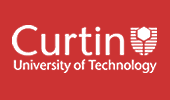
303770 v.3 Bachelor of Science (Environmental Biology)BSc(Curtin) IntroductionThis course provides a broad, practically-based training in biology. Students are able to design their second and third year program in order to specialise in environmental biology, biodiversity studies, restoration of disturbed ecosystems or aquatic science streams. For those wishing to become biology teachers, the course provides an initial qualification prior to undertaking teaching studies. An additional pathway to becoming a biology teacher is to undertake the double degree Bachelor of Science (Environmental Biology), Bachelor of Education (Secondary Education). Course Entry Requirements/PrerequisitesAt least one TEE science subject and one TEE mathematics subject. Specific RequirementsSTAT elements considered are E and either V or Q. Recognition of Prior LearningApplications for recognition of prior learning are assessed on an individual basis. Duration and AvailabilityThe course is three years full-time or equivalent part-time study. Course OrganisationIn the first year of the course students are required to take Frontiers of Science 101, Science Communications 101, a Mathematics unit and a Statistics unit. Students also take one Science Foundation Studies in each semester of year one. The Science Foundation Studies units are to be chosen from disciplines other than their major field (for example, Environmental Biology, Chemistry, Physics, Biomedical Sciences or Resource Science, as per the prescribed list). The remainder of the first year is made up of three major studies units. In each of years two and three of the course students do six major studies units and two minor studies units. The major studies provide students with depth in the discipline and professional accreditation in Chemistry/Physics/Mathematics and Statistics. The minor studies are chosen from a different discipline to the major. The final year includes a 50 credit project in the major. Some of the projects are jointly supervised by Curtin staff and industrial biologists. Work experience programs are also organised and provide periods of at least four weeks continuous industrial employment for final year undergraduate students. Career OpportunitiesThe biologist in industry - several Commonwealth and State Government departments provide employment opportunities for biologists. There is also a growing awareness of the usefulness of biologists in private industry. This course provides a valuable background for those wishing to embark on a career with any of these organisations. Those already employed in industry will also find the course useful, although the needs of such people may be better satisfied by honours, postgraduate diploma, Master of Science and Doctor of Philosophy courses offered by the Department. The biologist as a teacher - opportunities exist for those wishing to embark on careers as general and human biology teachers in high schools and colleges in Western Australia. This course has been designed to provide training for such people. Practising biology teachers with basic qualifications who wish to further their knowledge may find the masters degree courses in biology and natural resources particularly useful. Additional Course ExpensesStudents may be expected to purchase a number of textbooks, readers and other vital study materials. In addition, students may also need to contribute some of the cost of consumables, which varies depending on the area of study. Some units within this course may have a field component, for which costs may be incurred. Special NoteThe course structure for years 2 - 3 is indicative only for the 2004 intake and is currently under review.
Availability
The information displayed above refers to study periods and locations where the course is available for first time entry. Students are normally only offered or admitted to a course once. *The course itself may not be available either solely internally or externally but individual units may be offered in either or both of those modes. Prospective students should contact the Course Coordinator for further information. Click here for a printable version of this page |
 |
|||||||||||||||||||||||||||||||||||||||||||||||||||||||||||||||||||||||||||||||||||||||||||||||||||||||||||||||||||||||||||||||||||||||||||||||||||||||||||||||||||||||||||||||||||||